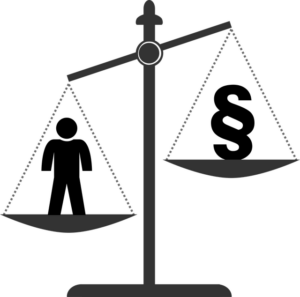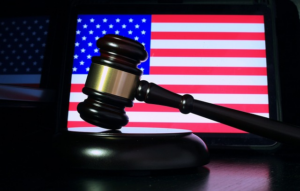Do you feel safe around the police? For many people, the answer is no. In recent years, there have been countless cases of police misconduct, from excessive force to racial profiling and even murder. This has led to growing concern about civil rights violations and the need for justice.
As a citizen, it is important to understand what constitutes police misconduct, how it impacts communities, and what can be done to seek justice for victims.
In this article, you will explore examples of police misconduct and the impact it has on individuals and society as a whole. You will also learn about civil rights violations and the importance of seeking justice for those who have been wronged.
Finally, you will discover the legal options available to victims of police misconduct and the steps being taken to address this issue. By the end of this article, you will have a better understanding of the role of technology and social media in exposing police misconduct and the role that you can play in promoting accountability and justice.
Key Takeaways
- Police misconduct undermines trust and confidence in law enforcement agencies, and strains relationships between law enforcement and communities.
- Holding law enforcement accountable for civil rights violations is necessary to ensure fair treatment and respect for all citizens, and requires policies and procedures that promote transparency and accountability.
- Legal options for victims of police misconduct include filing a complaint, lawsuit, or contacting an attorney who specializes in civil rights, and seeking justice brings closure, prevents future violations, and sends a message that civil rights violations will not be tolerated.
- Efforts to address police misconduct include technology and social media, body-worn cameras, independent investigations, community policing, training and education programs, accountability measures, and advocating for policy change at the local, state, and national level. Building relationships between police officers and communities, knowing rights as a citizen, and staying safe while recording instances of police misconduct are also important.
Examples of Police Misconduct
You’ve probably heard about cases where cops have used excessive force or engaged in racial profiling – these are examples of police misconduct.
Excessive force can take many forms, from using a taser or pepper spray when it’s not necessary, to physically assaulting someone who is already restrained. In some cases, police officers have even used deadly force when it wasn’t warranted, leading to tragic consequences.
Racial profiling is another form of police misconduct that has received a lot of attention in recent years. This occurs when police officers target individuals based on their race or ethnicity, rather than on any actual evidence of wrongdoing. This can lead to innocent people being stopped, searched, or even arrested simply because of the color of their skin. It’s a serious violation of civil rights, and it’s important that we hold police officers accountable when they engage in this kind of behavior.
The Impact of Police Misconduct
As you delve into the impact of police misconduct, you’ll notice three significant points that require attention.
First, police misconduct strains the relationship between law enforcement and communities.
Second, it often leads to protests and riots, which further worsen the situation.
Lastly, it sparks calls for policy and legislative changes to address the issue and prevent it from happening again.
Strained Relationships between Law Enforcement and Communities
Despite efforts to improve community relations, tensions between law enforcement and the communities they serve remain high.
This strained relationship can be attributed to a number of factors, including incidents of police misconduct, racial profiling, and a lack of accountability for officers who engage in abusive behavior.
These issues have eroded the trust and confidence that communities should have in their law enforcement agencies, leading to a breakdown in communication and cooperation between the two groups.
In order to address these issues, it’s important for law enforcement agencies to take a proactive approach to rebuilding relationships with the communities they serve.
This can involve implementing policies and procedures that promote transparency and accountability, such as body cameras and independent oversight boards.
Additionally, law enforcement agencies must work to address the root causes of tensions between police and communities, such as systemic racism and bias.
By taking these steps, law enforcement can begin to repair the damage done to community relations and restore trust and confidence in the justice system.
Protests and Riots
The ongoing protests and riots across the country highlight the deep-seated frustration and anger felt by many members of the community towards law enforcement and the justice system.
As a member of the community, you may feel frustrated and powerless in the face of police brutality and systemic racism. You may be feeling the weight of centuries of oppression and injustice, and the protests and riots may be your only outlet for expressing your anger and demanding change.
However, it’s important to remember that violence and destruction of property don’t solve the problem at hand. While peaceful protests are a fundamental right in our democracy, destruction and violence only serve to harm the very community members who are already suffering.
It’s important to channel your anger and frustration into constructive action, such as community organizing and advocacy for policy change. Only through sustained, peaceful efforts can we hope to see real change and justice for victims of police misconduct.
Calls for Policy and Legislative Changes
You can make a difference by advocating for legislative and policy changes that address systemic inequalities and promote accountability within our justice system.
Here are three concrete ways you can do this:
-
Contact your local and national representatives and urge them to support legislation that addresses police misconduct and promotes accountability for civil rights violations.
-
Participate in peaceful demonstrations and protests that call for reform and change within the justice system.
-
Educate yourself and others on the issues of police misconduct and civil rights violations by reading and sharing articles, books, and documentaries that shed light on these issues.
It’s important not to remain silent and complacent in the face of injustice. By taking action and advocating for change, we can work towards a more just and equitable society for all.
Civil Rights Violations
Hey, did you know that if you believe your civil rights have been violated by the police, there are steps you can take to seek justice? Civil rights violations by police officers can range from excessive force and false arrest to racial profiling and discrimination. If you believe you have been the victim of police misconduct, it is important to take action and hold those responsible accountable for their actions.
One way to seek justice for civil rights violations by the police is to file a complaint with the police department’s internal affairs division. This will initiate an investigation into the incident and can result in disciplinary action or even criminal charges against the officer(s) involved. Additionally, you can file a lawsuit against the police department and/or individual officers involved in the violation. A civil lawsuit can result in compensation for damages, such as medical bills or lost wages, as well as punitive damages to deter future misconduct. It is important to seek legal counsel before pursuing a lawsuit, as the process can be complex and time-consuming.
| Pros of Filing a Complaint | Cons of Filing a Complaint |
|---|---|
| Can result in disciplinary action against the officer(s) involved | Investigation may not result in any action being taken |
| Can bring attention to the issue and lead to policy changes | Internal affairs division is part of the police department, which can lead to bias |
| Can be a first step in seeking justice for civil rights violations | Process may be lengthy and stressful |
The decision to file a complaint or lawsuit is a personal one and should be made after careful consideration of the potential outcomes and consequences. However, it is important to remember that taking action against police misconduct not only seeks justice for the individual victim, but also helps to hold law enforcement accountable and promote a more just and equitable society.
The Importance of Seeking Justice
Now that you understand what civil rights violations are and how they occur, it’s crucial to recognize the importance of seeking justice. When someone’s civil rights are violated, it can have a significant impact on their life.
Seeking justice not only holds those responsible accountable but also sends a message that these actions will not be tolerated. Here are three reasons why seeking justice for civil rights violations is essential:
-
It brings closure to the victim and their loved ones.
-
It helps prevent future violations by holding those responsible accountable.
-
It sends a message that civil rights violations will not be tolerated in society.
It’s important to remember that seeking justice is not just about the individual case but also about creating a better and more just society for all. If we turn a blind eye to civil rights violations, we allow them to continue.
By seeking justice, we can make a difference and promote equality and justice for all.
Legal Options for Victims
Feeling helpless after experiencing a violation, it’s essential to know your legal options and take action towards holding the responsible parties accountable. There are several legal options available for victims of police misconduct. These options include filing a complaint with the police department, filing a civil lawsuit, and contacting an attorney who specializes in civil rights.
Filing a complaint with the police department is a crucial first step in holding officers accountable for their actions. This can be done by contacting the internal affairs division of the department and providing details of the incident. Additionally, filing a civil lawsuit can help victims seek justice and receive compensation for damages. It’s important to note that there are time limits for filing a lawsuit, so it’s essential to act quickly. Finally, contacting an attorney who specializes in civil rights can provide victims with legal guidance and support throughout the process. By taking action and seeking justice, victims of police misconduct can hold responsible parties accountable and prevent future violations from occurring.
| Pros | Cons | |||
|---|---|---|---|---|
| Holding responsible parties accountable | Financial burden of legal fees | |||
| Seeking justice for damages | Emotional toll of reliving trauma | |||
| Prevention of future violations | Time and effort required for legal action | Advocating for change in policies and regulations | Possible negative backlash or retaliation from responsible parties or their supporters |
Steps Being Taken to Address Police Misconduct
Efforts are being made to address issues of police misconduct through various initiatives and reforms. Here are some steps that are being taken:
-
Many police departments are now required to use body-worn cameras to increase transparency and accountability. This helps to ensure that officers are following proper protocol and are not engaging in misconduct.
-
Some cities and states are implementing independent investigations of police misconduct to avoid conflicts of interest. This ensures that investigations are carried out fairly and without any bias.
-
This approach involves building relationships between police officers and the communities they serve. By establishing trust and mutual respect, officers are more likely to act appropriately and engage in less misconduct.
-
Police departments are increasing their training and education programs to address issues of bias, racism, and excessive use of force. This helps officers to better understand their roles and responsibilities and to act in accordance with the law.
-
Police departments are implementing accountability measures to ensure that officers who engage in misconduct are held responsible for their actions. This can include disciplinary action, termination, or even criminal charges in extreme cases.
Overall, these efforts are important steps towards addressing issues of police misconduct and ensuring that civil rights violations are properly investigated and prosecuted. It’s important to continue pushing for reforms and accountability measures to ensure that everyone is treated fairly and justly under the law.
The Role of Technology and Social Media
You may have noticed that technology and social media have played a significant role in exposing instances of police misconduct. People are now able to record and share videos of police brutality, which has led to increased accountability for law enforcement.
It’s important to address police misconduct and advocate for change, while also supporting the victims of these civil rights violations.
Recording and Sharing Police Misconduct
Recording and sharing instances of police misconduct can make a significant impact in holding law enforcement accountable for civil rights violations. With the prevalence of smartphones and social media platforms, it has become easier for bystanders to capture footage of police brutality and share it with the world. These videos can serve as evidence in legal proceedings and also bring attention to the issue, sparking public outrage and putting pressure on authorities to take action.
However, recording and sharing police misconduct is not without its risks. In some cases, bystanders have faced retaliation from law enforcement for capturing footage or speaking out against police brutality. It’s important to know your rights as a citizen and stay safe while recording.
Despite these risks, the power of technology and social media cannot be ignored in bringing awareness and accountability to cases of police misconduct.
Holding Law Enforcement Accountable
It’s time to make them answer for their actions and ensure they are held accountable. Law enforcement officers are given a great deal of power and authority in our society, and with that power comes responsibility. When they abuse that power and violate the civil rights of citizens, they must be held accountable for their actions.
One way to hold law enforcement accountable is through the use of civilian review boards. These boards are made up of community members who are tasked with reviewing complaints of police misconduct and making recommendations for disciplinary action. The table below provides examples of some of the types of complaints that might be reviewed by a civilian review board, as well as some of the potential outcomes of those reviews. By involving community members in the review process, civilian review boards can help to increase transparency and accountability in law enforcement.
| Types of Complaints | Potential Outcomes |
|---|---|
| Excessive use of force | Suspension, termination, or retraining of officer |
| Racial profiling | Apology to complainant, mandatory training for officer |
| Sexual harassment | Termination of officer, mandatory training for department |
| Failure to intervene | Suspension or termination of officer, mandatory training for department |
| False arrest | Apology to complainant, compensation for damages |
| Retaliation against whistleblowers | Termination of officer, protection for whistleblower |
Another way to hold law enforcement accountable is through the use of body cameras. These cameras can provide a record of police interactions with citizens, which can be used to investigate complaints of misconduct and hold officers accountable for their actions. When officers know that their actions are being recorded, they may be less likely to engage in misconduct. The table below provides examples of some of the benefits of using body cameras in law enforcement.
| Benefits of Body Cameras |
|---|
| Increased accountability for officers |
| Improved transparency in law enforcement |
| Better evidence for investigations and trials |
| Reduced complaints of police misconduct |
| Increased trust between law enforcement and community members |
By implementing these and other measures to hold law enforcement accountable for their actions, we can work to ensure that all citizens are treated fairly and with respect. It’s time to make sure that those who are sworn to protect and serve are held to the highest standards of professionalism and integrity.
Importance of Addressing Police Misconduct
Imagine walking down the street, feeling safe and secure in your community, but suddenly that feeling is shattered by a senseless act of violence committed by those who are supposed to protect and serve.
Police misconduct not only violates our civil rights, but it also erodes the trust we have in law enforcement. It’s crucial to address police misconduct because it’s a matter of justice and accountability, and it’s necessary to ensure the safety and well-being of all members of the community.
When police officers disregard their training and engage in misconduct, it not only harms the individuals involved but also undermines the integrity of the justice system. Police misconduct can take many forms, such as excessive force, racial profiling, and unlawful searches and seizures.
Addressing police misconduct involves holding law enforcement accountable for their actions and implementing policies and procedures to prevent future incidents. Ultimately, addressing police misconduct is necessary to build trust and confidence in law enforcement and create a safer and more just society for all.
Advocating for Change
Advocating for change means we can work together to create a safer and more trustworthy community. It means standing up for what is right, even if it means going against the status quo. It means holding law enforcement accountable for their actions and demanding that they uphold the civil rights of every individual they serve and protect.
One way to advocate for change is to get involved in community organizations that advocate for police accountability. These organizations can provide resources and support, as well as a platform to voice your concerns and ideas for change. Another way is to participate in peaceful protests and demonstrations, where you can raise awareness and demand action from elected officials and law enforcement leaders. By working together to advocate for change, we can create a society that values justice, fairness, and equality for all.
| Police Misconduct | Reasons for Advocating | Ways to Advocate | ||
|---|---|---|---|---|
| Unlawful use of force | Upholding civil rights | Join community organizations | ||
| Racial profiling | Demanding accountability | Participate in peaceful protests | ||
| False arrests | Ensuring justice | Contact elected officials | ||
| Harassment and intimidation | Building trust | Document and report incidents | ||
| Discrimination based on gender, sexuality, or religion | Promoting equality | Hold public officials accountable | Educating oneself and others on systemic racism and its impact on marginalized communities. |
Supporting Victims of Police Misconduct
Supporting individuals who’ve experienced harm at the hands of law enforcement is crucial to healing and rebuilding trust within the community. If you or someone you know has been a victim of police misconduct, there are resources available to help you navigate the legal system and seek justice.
Here are some ways to support victims of police misconduct:
-
Listen to their story and validate their experience. It can be incredibly difficult to come forward and speak out against law enforcement, especially if you fear retaliation or have experienced trauma. By simply being a supportive listener, you can help victims feel heard and believed.
-
Connect them with legal support. Victims of police misconduct may need legal representation to seek justice and hold law enforcement accountable for their actions. Help them find a lawyer who specializes in civil rights violations or connect them with organizations that provide legal support.
-
Advocate for policy change. Police misconduct is often a systemic issue that requires systemic change. By advocating for policy change at the local, state, and national level, you can help prevent future incidents of police misconduct and support victims who have already been harmed.
-
Offer emotional support. Victims of police misconduct may experience a range of emotions, including anger, fear, and trauma. Offer emotional support by checking in on them, providing resources for counseling or therapy, and reminding them that they’re not alone in their experience.
By supporting victims of police misconduct, we can work towards a more just and equitable society where law enforcement is held accountable for their actions and all individuals are treated with dignity and respect.
Frequently Asked Questions
What are some common reasons why police officers engage in misconduct?
You may wonder why police officers engage in misconduct. Some common reasons include a sense of entitlement, a lack of accountability, and the pressures of the job.
Officers may feel that they’re above the law and can get away with breaking the rules. They may also feel that they’re doing whatever it takes to keep their community safe, even if that means bending the rules.
Additionally, the high-stress and dangerous nature of police work can lead to officers making poor decisions or reacting inappropriately.
Regardless of the reasons, police misconduct is a serious problem that undermines the trust between law enforcement and the communities they serve.
How do police departments typically respond to allegations of misconduct?
When allegations of misconduct are made against police officers, police departments typically respond by conducting an internal investigation. Depending on the severity of the allegations, the department may also involve outside agencies, such as the FBI or local prosecutors.
During the investigation, officers involved in the incident may be placed on administrative leave or suspended without pay. If the investigation finds evidence of misconduct, disciplinary action may be taken, ranging from a reprimand to termination of employment. In some cases, criminal charges may also be filed against the officers involved.
Ultimately, the response of the police department depends on the specific circumstances of the alleged misconduct and the policies and procedures of the department.
What are some long-term consequences for victims of police misconduct?
If you’re a victim of police misconduct, there can be long-term consequences for your physical, emotional, and financial wellbeing. You may suffer from physical injuries, trauma, and mental health issues such as anxiety, depression, and PTSD.
These can affect your ability to work, maintain relationships, and live a normal life. You may also face financial burdens such as medical bills, legal fees, and loss of income.
Additionally, you may lose trust in law enforcement and the justice system, making it difficult to seek help in the future. It’s important to seek support and resources to help you cope and recover from the effects of police misconduct.
How can communities work to prevent police misconduct from occurring in the first place?
To prevent police misconduct from happening in the first place, you can work with your local community to establish clear guidelines for police conduct and accountability. This can include implementing regular training programs for officers on how to properly handle situations and interact with the public, as well as creating a system of oversight and review to monitor police behavior.
Additionally, building relationships between law enforcement and community members can help to promote mutual trust and respect, which can lead to better communication and fewer incidents of misconduct. It’s important for everyone to speak out and report any instances of police misconduct that they witness or experience, as well as holding law enforcement accountable for their actions.
By working together, communities can create a safer and more just environment for all.
What kind of support is available for victims of police misconduct beyond legal options?
If you’re a victim of police misconduct, there are various support options available beyond just legal avenues. You can seek emotional support from family, friends, or a therapist to help cope with the trauma.
Additionally, there are advocacy organizations that provide resources and guidance to victims, such as the National Police Accountability Project and the ACLU. These organizations can offer assistance with filing complaints, accessing medical care, and navigating the legal system.
It’s important to remember that you’re not alone and there are people and resources available to help you seek justice and healing.
Conclusion
So now you know the devastating impact that police misconduct can have on individuals and entire communities. It’s a violation of basic civil rights and can lead to physical and emotional harm, as well as a breakdown of trust between law enforcement and the public.
But the good news is that there are legal options available for victims, and steps are being taken to address this issue.
It’s important to remember that seeking justice for police misconduct is not only crucial for individual victims, but also for society as a whole. By holding law enforcement accountable and demanding transparency and fairness, we can work towards a more just and equitable system.
With the help of technology and social media, we can continue to shine a light on this issue and push for lasting change.






























